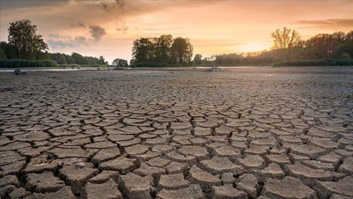Local climate communicator Peter Makwanya has emphasized the critical role of local adaptation in addressing the challenges posed by climate change. Writing in a local publication, Makwanya underscored the importance of respecting and maintaining local agrobiodiversity to mitigate food stress linked to climate change.
“It is in this view that local agrobiodiversity should be respected and remain ecologically balanced to avoid climate change linked food stress. Locally driven adaptation practices which support the ecological knowledge systems and give rise to resilience to local food systems should not be lost to spirited disinformation efforts by the developed countries. Therefore, local adaptation knowledge is helpful and it normally leads to climate friendly adaptation practices,” Makwanya said
He highlighted the significance of communication ecology in preventing the loss of rural livelihoods and the lack of sustainable markets for rural products. “Communication ecology is key in avoiding loss of rural livelihoods, environmental degradation and lack of sustainable markets for rural products. The idea is to create necessary conditions for improved food security, generate employment for themselves, safeguard the environment, increase income and realise climate resilience.
“Whatever the case or obtaining situations, the significance of the local community-led climate change interventions remains supreme and the cornerstone of resilience building in this fast-changing climate. Successful adaptations initiated locally are simple, experiential, cost effective, sufficiently engaging and poised to deliver,” he said.
For effective adaptation solutions, Makwanya stressed the importance of engaging, consulting, and mainstreaming local communities into climate budgeting processes. “For adaptation solutions to be realised, local communities need to be engaged, consulted and mainstreamed into climate budgeting. Community inspired adaptations have the advantages of local ingredient informed by indigenous knowledge systems, worldviews, immediacy ownership and proximity to the impacts of climate change, and far away from the policy failures and duplication by policymakers. Community driven adaptations are not once-off events but rather ongoing, feedback oriented, people-centred and human specific, in ways that are easily recognised, appreciated and understood by the communities.
“In developing countries, climate action is not a matter of choice if it does not bring quick financial gains at the expense of the long term and sustainable ones. In many developing countries, interdisciplinary climate action involvements are weak simply because climate scientists and other scientific technical experts, still think that climate change is their commodity and community of practice, ring-fenced and gatekept,” said Makwanya.



